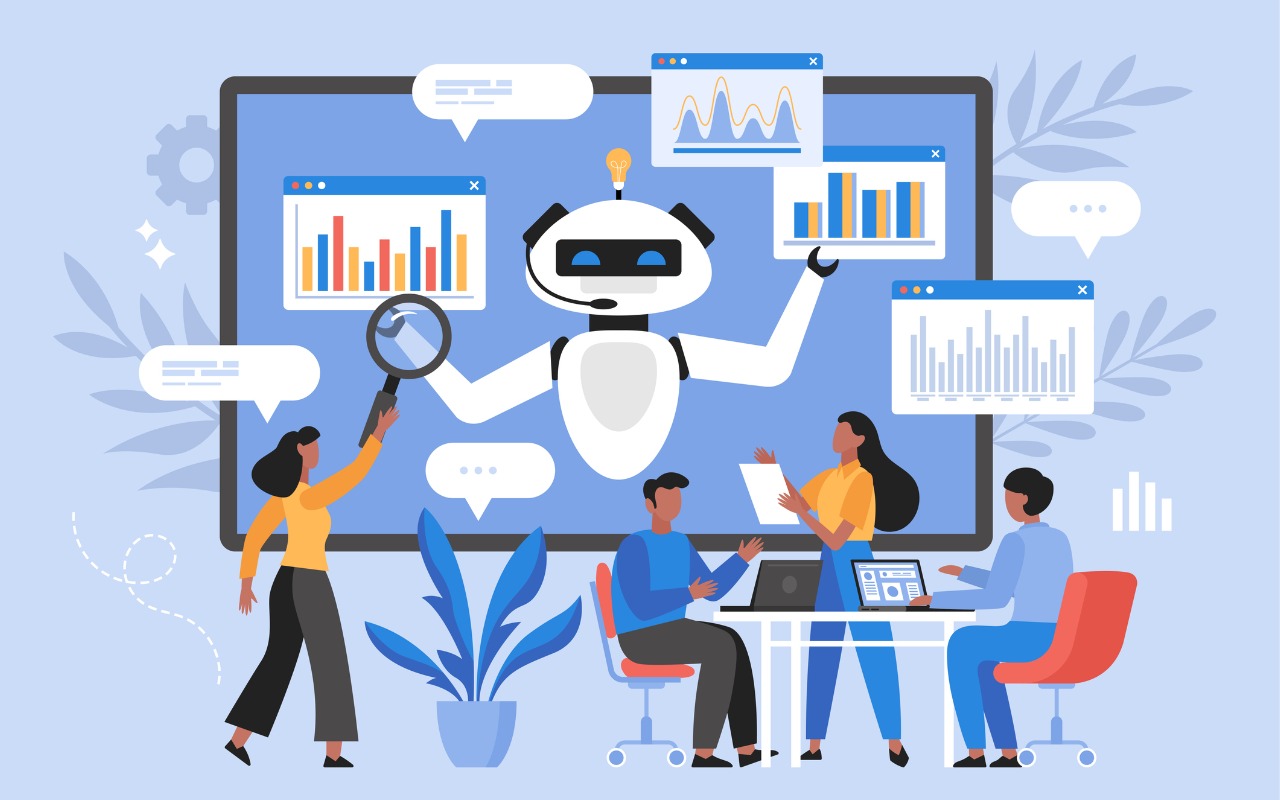Why Every Business Needs an AI Policy
AI tools like ChatGPT, Claude, Copilot, and Gemini are increasingly showing up in the workplace, even when they’re not officially approved. A Software AG study from October 2024 found that half of all employees use “shadow AI” tools to boost productivity, and most say they’d keep using them even if explicitly banned by their employer.
AI can certainly improve efficiency, but unsanctioned and unregulated use introduces real risks. A TELUS Digital survey from February 2025 reported that 57% of enterprise employees have entered sensitive or high-risk data into public AI chatbots. That includes employee or customer information, financial data, and internal project details.
Developing a clear AI policy is essential to protect your company’s data, reputation, and compliance posture. This applies to organizations of all sizes, including small businesses. A strong policy helps maximize the benefits of AI while setting guardrails around its use.
What Risks Does an AI Policy Address?
Without guidelines in place, unauthorized AI use can lead to a range of issues:
Data security:
Employees may unknowingly paste sensitive customer or internal data into public AI platforms, losing control over how that data is stored or used. Free versions of tools like ChatGPT and Gemini may incorporate inputs into training models by default unless this feature is turned off. That means your confidential information could potentially reappear in someone else’s conversation.
Legal and compliance issues:
Sharing protected data with non-compliant tools may violate regulations, even if no breach occurs. For example, summarizing patient information in an AI chatbot could trigger HIPAA violations, while analyzing customer data without safeguards could breach the California Consumer Privacy Act (CCPA).
Bias and discrimination:
AI tools can unintentionally introduce bias into decisions around hiring, customer support, and other areas. These outcomes may violate ethical guidelines without oversight or open the company to legal risk.
Employee confusion:
Inconsistent or unclear rules around AI use can lead to hesitation, missteps, or shadow practices undermining productivity and security.
What to Include in a Company AI Policy
While the specifics may vary, most AI policies should include:
- Approved uses and tools: Define which types of tasks employees may use AI for, and list the platforms permitted for business use.
- Data privacy and legal compliance: Clearly outline how sensitive or proprietary data should (and should not) be handled using AI.
- Human review and transparency: Require employees to verify AI-generated output before using it, especially in client-facing content, and disclose AI involvement where appropriate.
- Incident response protocols: Provide clear steps for reporting errors, misuse, or AI-related concerns.
- Ownership and IP guidance: Clarify that work created with AI tools belongs to the company, and address any intellectual property considerations.
How to Draft Your AI Policy (With Help From AI)
If you do not already have a policy-writing process, an AI tool can help jumpstart the draft when used thoughtfully.
Here’s how:
- Start with a template: Use a tool like ChatGPT or Claude to generate a basic AI policy template. Be specific in your prompt—include your industry, company size, and a list of required sections like those above.
- Customize and review: Edit the output to reflect your operations. Replace generic content and highlight areas that need company-specific input.
- Gather internal feedback:
- Leadership can ensure that the policy reflects organizational goals.
- IT can assess feasibility and technical considerations.
- Legal can confirm compliance with data and privacy laws.
- Department heads can weigh in on day-to-day practicality.
- Finalize with input from all sides: Adjust the draft based on stakeholder input to align with your business needs and risk profile.
Remember: The AI-generated template is just a starting point—the final policy should be created with input from real people and reviewed thoroughly before implementation.
Final Thoughts
The rise of AI in the workplace isn’t a passing trend—it’s a shift in how work gets done. Whether employees use AI tools under the radar or avoid them altogether due to uncertainty, the solution is the same: set clear expectations.
A well-crafted AI policy can help your business embrace AI’s benefits while managing risks. Starting now will put you ahead of the curve—and give your team the clarity they need to use these tools responsibly.
(Featured image by iStock.com/girafchik123)
Need Help? Contact us to learn how we can help your business.







